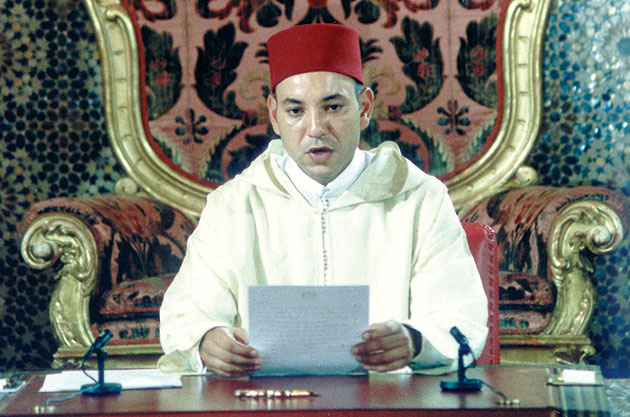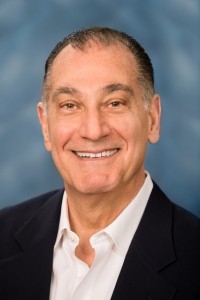Updated
King Mohammed VI, Then and Now — Ambassador Edward M. Gabriel (ret.)

King Mohammed VI first public speech on the anniversary of the Revolution of the King and People (Rabat August 20, 1999) Photo:Challenge.ma
Ambassador Edward M. Gabriel (ret.)
July 30, 2018
Following his enthronement on July 30, 1999, His Majesty King Mohammed VI gave his first public speech on August 20th on the anniversary of the Revolution of the King and People. Rereading it nineteen years later provides an interesting insight into his thinking then and now.
The sorrow expressed at the death of King Hassan II was still fresh on the new King’s mind as he and his country grappled with the pain and reality of his death. He defined his father in the dearest of terms, “In this climate of sadness and sorrow, the impact of which is still profound in all of us, following the death of the father of the nation, our august father, His Majesty King Hassan II, may God have it in his holy mercy, comes the anniversary of the revolution of the King and the people”.
He goes on to say that King Hassan put Morocco “in remarkable position with regard to the general renaissance that he initiated, placing Morocco on the path of a continuous struggle to face all the crises and all the challenges, to find solutions to the various problems, and in the first place the question of the territorial integrity that he treated with wisdom and weight, respecting the United Nations resolutions and providing full support for the success of the confirmatory referendum in our southern provinces.”
He adds that “we will remain faithful to the Hassan way…the guarantor of the continuity of the state, safeguarding our religion, the homeland and unity of the kingdom with its authentic borders”.
King Mohammed VI then provides insight into his own vision, “we invite everyone with vigor and firmness, without relaxation or respite, of the observance of the rule of law within the framework of the freedoms guaranteed by the constitution to individuals and organizations, of the procedures that govern the exercise of these freedoms and the enjoyment of the various rights, the violation or non-respect of which exposes them to the application of the laws in force”.
These first words regarding the freedom of individuals and rule of law, coming from this newly enthroned king in the first weeks of his reign, attest to the fact that they were from a deep belief concerning the course that his country must take, and thus provide an insight into his future reign.
His first announcement in this speech was the formation of an independent arbitration body, the Human Rights Advisory Council, to determine compensation for victims and claimants of missing persons and those who have been arbitrarily detained. This would be the first time in history that an equity and reconciliation commission would be established by the same regime investigating itself.
The King then turns his attention to “social issues of interest to all citizens, civilians, and the military, with special focus on the needy or underprivileged categories,” by asking a series of questions:
- How can we achieve scientific progress and be in tune with the evolved world to enhance their vocation and their skills without modern education?
- How can we hope to achieve progress and prosperity when women, who make up half of society, see their interests flouted, regardless of the rights with which our holy religion has placed them on an equal footing with men? These are rights that correspond to their noble mission, rendering them justice against any inequity or violence to which they may be subjected, even though they have reached a level that allows them to compete with men, be it in the field of science or employment?
- How can we ensure equal opportunities for all, if the (poor and) physically handicapped are marginalized and excluded …?
He ends his speech by stating, “ We do not hold a magic wand by which we claim to solve all these problems and many others, but we are firmly determined to face them…” and “with such sustained interest that we will follow the policy of our regretted father… with regard to the question of our territorial integrity, reiterating our commitment to the resolutions of our United Nations, our support for Minurso and the High Commissioner for Refugees, and our contribution to the success of the confirmatory referendum in our southern provinces.”
Policymakers should study this first speech of King Mohammed VI as it reveals his priorities: a commitment to his father’s legacy to consolidate Morocco’s territorial integrity through a “confirmatory” referendum on the Sahara; a focus on the most vulnerable populations including women, the poor and handicapped; and, the need to educate the population for a globalized world.
The more things change the more they stay the same. America should study the evolution of the priorities of King Mohammed VI and see that he has been consistent in his vision and mission over the past 19 years. It may be taking longer than expected, but the US should partner with this consistent and predictable vision, which is clearly in line with US values and interests.
